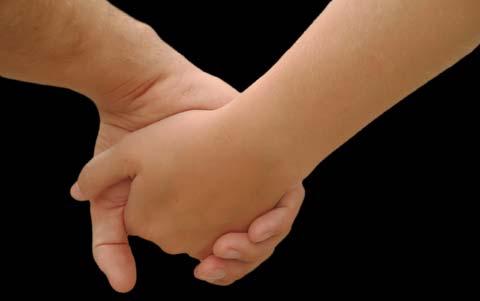Let's Hold Hands: Why Viruses Love Humans

Get the world’s most fascinating discoveries delivered straight to your inbox.
You are now subscribed
Your newsletter sign-up was successful
Want to add more newsletters?

Delivered Daily
Daily Newsletter
Sign up for the latest discoveries, groundbreaking research and fascinating breakthroughs that impact you and the wider world direct to your inbox.

Once a week
Life's Little Mysteries
Feed your curiosity with an exclusive mystery every week, solved with science and delivered direct to your inbox before it's seen anywhere else.

Once a week
How It Works
Sign up to our free science & technology newsletter for your weekly fix of fascinating articles, quick quizzes, amazing images, and more

Delivered daily
Space.com Newsletter
Breaking space news, the latest updates on rocket launches, skywatching events and more!

Once a month
Watch This Space
Sign up to our monthly entertainment newsletter to keep up with all our coverage of the latest sci-fi and space movies, tv shows, games and books.

Once a week
Night Sky This Week
Discover this week's must-see night sky events, moon phases, and stunning astrophotos. Sign up for our skywatching newsletter and explore the universe with us!
Join the club
Get full access to premium articles, exclusive features and a growing list of member rewards.
Last night we had dinner with friends, and instead of the usual clasping hands around the table and saying grace, we were instructed to simply point at each other. It was hard. I had to resist the urge to poke at both my neighbors, to contact then ever so slightly finger tip to finger tip, because I am so used to holding hands with the people. And therein lies the rub with the instruction from public health officials to keep away from others to stop the spread of the swine flu. Researchers from the University of Western Australia recently simulated a flu virus in a small town of 30,000 people and showed that staying home from work and school, isolating sick people, and canceling community events helps curb infection. Problem is, for us primates, the instruction to keep a "social distance" from each other is impossible to obey. Most mammals are solitary. After the youngsters grow up and leave their mothers, adults tend to be on their own. Such a system might be lonely, but it keeps these species relatively free of infectious disease because they can't catch anything from anybody. Primates, on the other hand, are an order full of social animals. For the most part, lemurs, lorises, monkeys, apes and of course humans, interact with each other all day long. Our social nature has been selected by evolution because it has many advantages such as easy access to mates and a collective mind when it comes to finding food and fooling predators. But sociality comes with a cost — we make great hosts for viruses. And our primate brand of closeness makes us particularly vulnerable. Other group-living animals, such as antelopes or zebras, are also social in the sense that they hang out together in a herd. But we primates are physically and emotionally intimate. Evolution has favored our flexible hands and given us nails rather than claws so we can groom each other. And we have long arms to wrap around a friend, and a poor sense of smell so we have to get up close and personal to evaluate a troop mate. But most of all, we depend on each other emotionally. As psychologist Harry Harlow's work in the 1960 and 1970s showed, the worst thing you can do to a little monkey is put it in isolation without physical contact or care from another monkey. Those animals quickly became depressed and eventually catatonic. And the only way to revive them psychologically was to put an age-mate "therapist" monkey into the cage and watch it climb all over the disturbed animal and bring it back to life. At the moment, we are not supposed to hold hands, hug each other, drink from a friend's cup, kiss anyone, or sit close enough to breathe someone's possibly fetid air. But we are so very used to that kind of contact, and we are designed by evolution to need it. And that's why it takes so long for flu viruses to spend themselves. No matter how hard we try to keep our social distance, there will always be ways in which we unconsciously, habitually, and repeatedly contact each other.
- Top 10 Missing Links
- Video – Jane Goodall's Wild Chimpanzees
- All About the Flu
Get the world’s most fascinating discoveries delivered straight to your inbox.
 Live Science Plus
Live Science Plus










